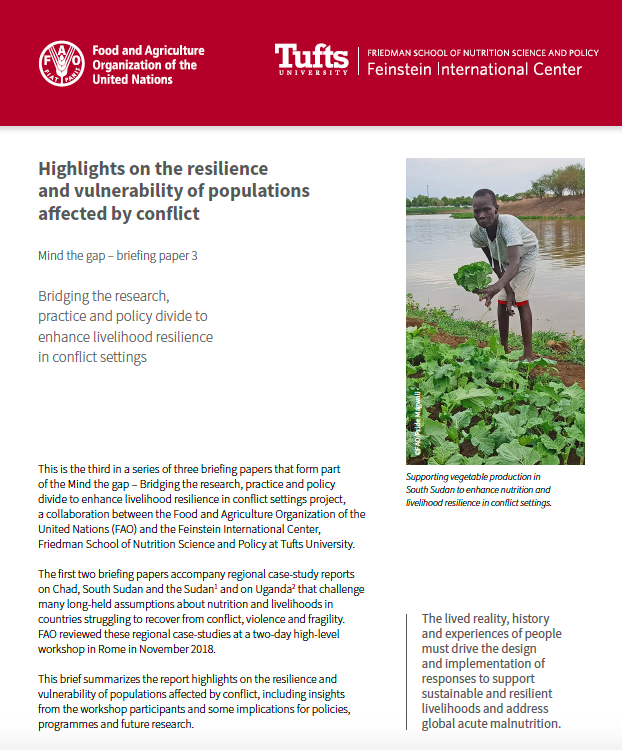This is the third in a series of three briefing papers that form part of the Mind the Gap: Bridging the Research, Policy, and Practice Divide to Enhance Livelihood Resilience in Conflict Settings project. The first two briefing papers accompany regional case-study reports on Chad, South Sudan and the Sudan, and on Uganda that challenge many long-held assumptions about nutrition and livelihoods in countries struggling to recover from conflict, violence and fragility. FAO reviewed these regional case-studies on resilience and vulnerability at a two-day high-level workshop in Rome in November 2018.
This brief summarizes the report highlights on the resilience and vulnerability of populations affected by conflict, including insights from the workshop participants and some implications for policies, programs, and future research.







